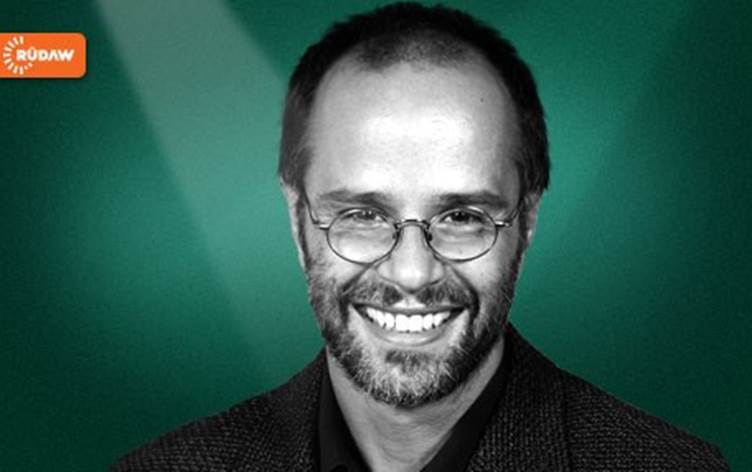A Very Different Ideology in the Middle East

Several years ago, my wife and I traveled to the Qandil mountains in Iraqi Kurdistan. We went to interview members of the Kurdistan Workers’ Party (PKK) and the Group of Communities in Kurdistan (KCK). We had a lengthy discussion with Remzi Kartal, one of the top leaders there at the time, who received us very graciously up in the high mountains.
The interview left me feeling frustrated, however. His answer to every one of my more difficult questions seemed the same: “The application of the correct ecological democratic paradigmatic will transform society to overcome this problem,” or something along those lines. It all sounded to me like what the Turks call “Ocalanspeak,” a jargon only intelligible to fellow believers within the movement. It felt like someone was trying to sell me an old product in a new package.
For months after the interviews in Qandil, I made light of the whole thing. Whenever my wife would ask me a question I did not really feel like answering (“Why didn’t you take out the garbage last night?” or “Who left all the dirty dishes in the sink?”), I would reply that “The application of a democratic ecological paradigmatic will resolve this problem;” or “We will elect a committee of men and another committee of women to investigate the issue;” or “Do you have any relatives in prison who can tell us what to do about this?”
Nowadays I think I was mistaken, however. The discourse spreading from Qandil to northern Kurdistan, Rojava and even Western Turkey (via the People’s Democratic Party) is different from the Marxist-Leninism and militant nationalisms of the past. It also stands in the starkest possible contrast to the ideology of the Islamists, whether of the Islamist State variety or the somewhat less extreme variants. It just takes a bit of time and effort to see this, especially given confusing labels and jargon (which I will try to avoid), and also the dearth of polished diplomats that would normally explain such things.
Free of jargon, the idea is to pursue a bottom-up, Athenian-style direct form of democratic governance. Local communities from the village level upwards take on as much self-government as they can, eschewing the strong central government model so favored in the region. Elections form councils whose members can be recalled at any time. The states people live under would thus become increasingly less relevant as each community seeks out its own preferred arrangements.
In this new thinking, it is a mistake to fight to replace authoritarian and repressive Turkish, Arab and Persian mono-ethnic states with a Kurdish one, a state also at risk of falling prey to the same tendencies. The PKK’s founder, Abdullah Ocalan, thus came to criticize himself for past behavior: “It has become clear that our theory, program and praxis of the 1970s produced nothing but futile separatism and violence and, even worse, that the nationalism we should have opposed infested all of us. Even though we opposed it in principle and rhetoric, we nonetheless accepted it as inevitable….dogmatism is nurtured by abstract truths which become habitual ways of thinking. As soon as you put such general truths into words you feel like a high priest in the service of his god. That was the mistake I made.”
A short column such as this cannot adequately explain much about such an alternative political program, of course (especially when the columnist is only now reappraising it). Readers might also legitimately point out that such rhetoric may sound great, but just like the fine-sounding constitutions of many states in the region, it may mean little in practice. Deeds count more than words.
In their deeds the KCK have done some remarkable things, however, and in the most difficult of circumstances. The same movement that motivates so many and just liberated Kobane from the Islamic State empowers women both on the battlefield and in in its political institutions. A 40% quota for women’s participation and a co-chair system ensures that women play a role in every leadership position, rather than serving as objectified passive vessels of men’s honor. In both Syrian Kurdistan and Turkish Kurdistan, KCK municipalities include a diverse array of ethnicities and religions. They insist on celebrating not just Kurdish culture and language, but that of Assyrians, Armenians, Arabs, Turks and other local communities. This stands in remarkable contrast to the exclusionary secular nationalisms that took root in the region for so long. It is the polar opposite of the intolerant Islamist wave that swept through the past twenty years and proved so destructive to religions minorities, from Christians and Yezidis to Bahai’ and atheists.
Given that the other ideological offerings in the Middle East appear to consist of authoritarianism, oligopolistic crony capitalist democracy and Islamism (or in the case of Turkey, an unlikely combination of all of the above), perhaps the world should help people like those of Kobane pursue their own, different path. While they may not be perfect and they may well disappoint, they certainly earned some respect and good will in the struggle against the Islamic State and other intolerant forces. The United States took a positive first step in this direction when it provided some arms and many air strikes to help the defenders of Kobane. Washington should do more, recognizing that this movement probably represents a much more progressive ally than others it has worked closely with in the past.
David Romano has been a Rudaw columnist since 2010. He is the Thomas G. Strong Professor of Middle East Politics at Missouri State University and author of The Kurdish Nationalist Movement (2006, Cambridge University Press) and co-editor (with Mehmet Gurses) of Conflict, Democratization and the Kurds in the Middle East (2014, Palgrave Macmillan).
The views expressed in this article are those of the author and do not necessarily reflect the position of Rudaw.
